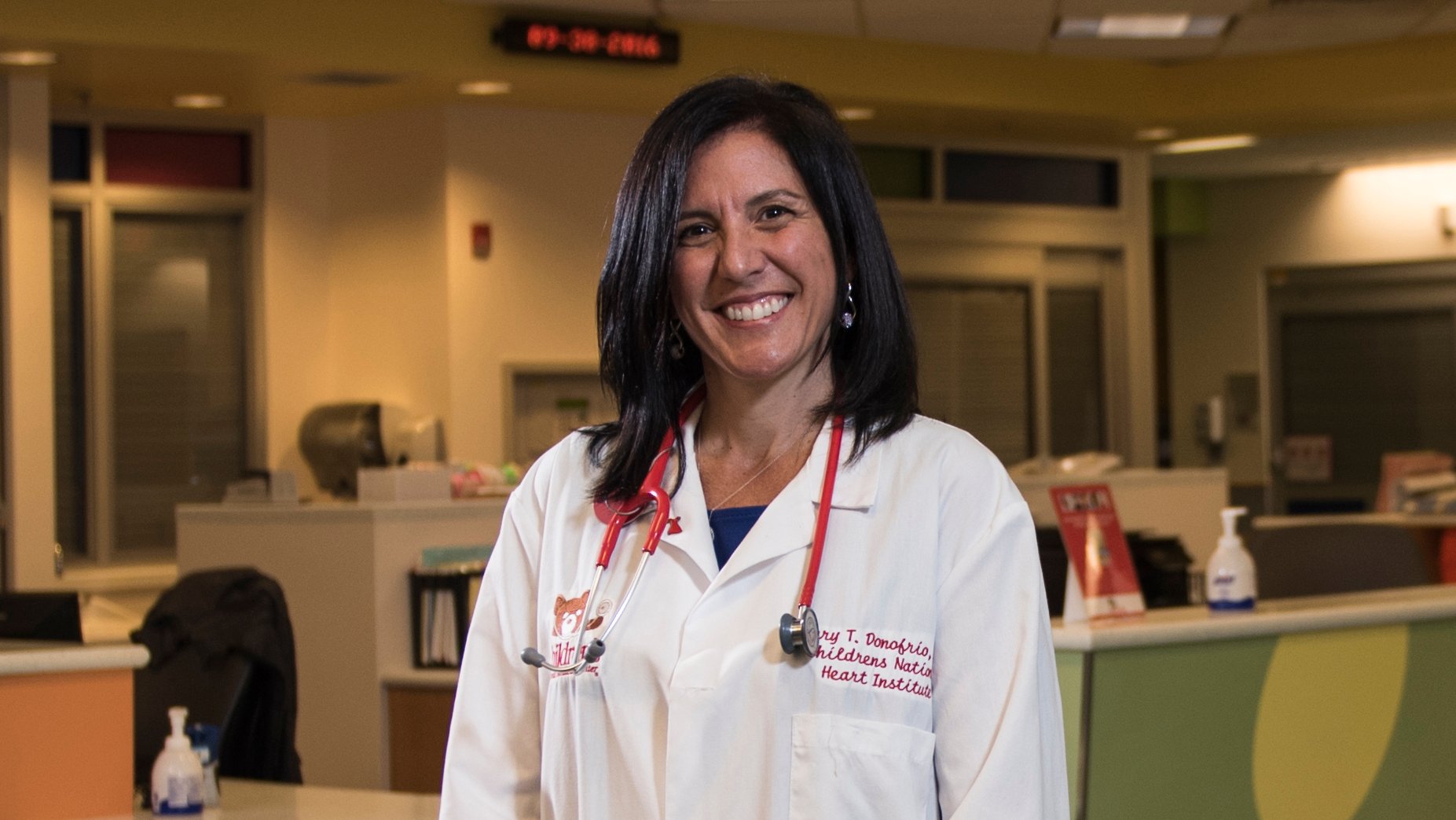
Meet Mary Donofrio, MD

Mary T. Donofrio, MD, Director of the Fetal Heart Program, authored the first set of clinical guidelines for the evolving specialty of fetal cardiology, which were part of an American Heart Association statement published online in Circulation in April 2014. Learn about the new guidelines from the author.
Q| What were the major objectives of these guidelines?
A | Our overarching goal was to establish guidelines for the diagnosis and treatment of fetuses with cardiovascular abnormalities. We also wanted to provide guidance for professionals on topics such as the diagnosis of congenital heart disease in utero, management of fetuses with cardiac abnormalities, and delivery room planning strategies to ensure a safer transition from prenatal to postnatal life.
Q | In addition to imaging and other aspects of prenatal care the statement touches on the importance of maternal and familial counseling, do you have any advice for physicians regarding how to address each family’s emotional needs?
A | Physicians need to provide honest medical information about the baby’s condition, including all possible outcomes. We also must be supportive and understanding. Medical professionals need to know that expectant mothers may experience depression and anxiety, which can affect both the pregnancy and their relationships with other family members. It’s important to see these families more than once during pregnancy to listen, answer questions and offer support. The help of a mental health specialist may sometimes be needed.
Q | Through the release of this statement, what would you most like other physicians to learn about the field of fetal cardiology?
A | Each fetus is an individual patient, and fetal cardiology is a distinct field that spans disciplines within the medical profession, including obstetrics, maternal-prenatal medicine and pediatric cardiology. Prenatal care should begin in utero and continue through delivery and into the postnatal period. Collaboration throughout the continuum of care allows specialists from all disciplines to work together, which is what will improve the outcome of children with congenital heart disease.




